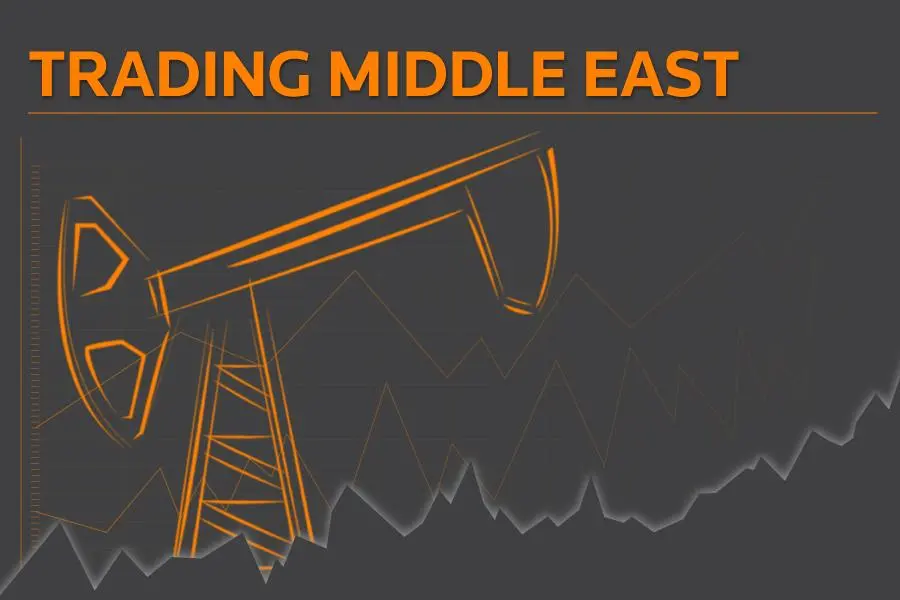PHOTO
Oil prices rose almost 2 percent on Friday, helped by rising Chinese crude demand and threats of a strike in Africa’s largest oil exporter.
But U.S. prices fell 1.7 percent on the week and Brent prices fell 0.5 percent amid concerns that rising U.S. production could undermine OPEC-led supply cuts.
Brent crude settled up $1.20 or 1.9 percent at $63.40 a barrel.
In stocks, Wall Street and other major global stock markets posted solid gains on Friday.
The pan-European FTSEurofirst 300 index rose 0.74 percent, supported by news that Britain and the European Union had a breakthrough in Brexit negotiations.
MSCI’s gauge of stocks across the globe gained 0.57 percent.
Most Middle Eastern stock markets were sluggish on Thursday but Saudi Arabia's index rebounded from technical support in its heaviest trading volume since June.
The Saudi index rose 0.9 percent to 7,086 points, bouncing from near strong support around 7,000 points, where the peaks in late October and November roughly coincide with the 200-day average, now at 7,015 points.
The most heavily traded stock, real estate firm Dar Al Arkan , climbed 8.3 percent to 12.88 riyals in its heaviest trade since June.
In Dubai, the index edged down 0.03 percent. Emaar Properties rebounded 2.0 percent but its unit Emaar Development continued to slide, falling 3.8 percent.
Abu Dhabi's index dropped 0.8 percent and Egypt's index slipped 0.3 percent.
In currencies, the U.S. dollar rose for a fifth straight day on Friday after data showed robust U.S. job growth.
The dollar rose against the euro and yen in choppy trading after the U.S. jobs data.
The dollar index rose 0.12 percent, with the euro down 0.06 percent to $1.1764.
Gold prices hovered above a four-month low on Friday and were on track for their biggest weekly fall since May after progress on U.S. tax reform fueled optimism about the U.S. economy and boosted the dollar.
For access to market moving insight, subscribe to the Trading Middle East newsletter by clicking here© ZAWYA 2017
But U.S. prices fell 1.7 percent on the week and Brent prices fell 0.5 percent amid concerns that rising U.S. production could undermine OPEC-led supply cuts.
Brent crude settled up $1.20 or 1.9 percent at $63.40 a barrel.
In stocks, Wall Street and other major global stock markets posted solid gains on Friday.
The pan-European FTSEurofirst 300 index rose 0.74 percent, supported by news that Britain and the European Union had a breakthrough in Brexit negotiations.
MSCI’s gauge of stocks across the globe gained 0.57 percent.
Most Middle Eastern stock markets were sluggish on Thursday but Saudi Arabia's index rebounded from technical support in its heaviest trading volume since June.
The Saudi index rose 0.9 percent to 7,086 points, bouncing from near strong support around 7,000 points, where the peaks in late October and November roughly coincide with the 200-day average, now at 7,015 points.
The most heavily traded stock, real estate firm Dar Al Arkan , climbed 8.3 percent to 12.88 riyals in its heaviest trade since June.
In Dubai, the index edged down 0.03 percent. Emaar Properties rebounded 2.0 percent but its unit Emaar Development continued to slide, falling 3.8 percent.
Abu Dhabi's index dropped 0.8 percent and Egypt's index slipped 0.3 percent.
In currencies, the U.S. dollar rose for a fifth straight day on Friday after data showed robust U.S. job growth.
The dollar rose against the euro and yen in choppy trading after the U.S. jobs data.
The dollar index rose 0.12 percent, with the euro down 0.06 percent to $1.1764.
Gold prices hovered above a four-month low on Friday and were on track for their biggest weekly fall since May after progress on U.S. tax reform fueled optimism about the U.S. economy and boosted the dollar.
For access to market moving insight, subscribe to the Trading Middle East newsletter by clicking here© ZAWYA 2017





















